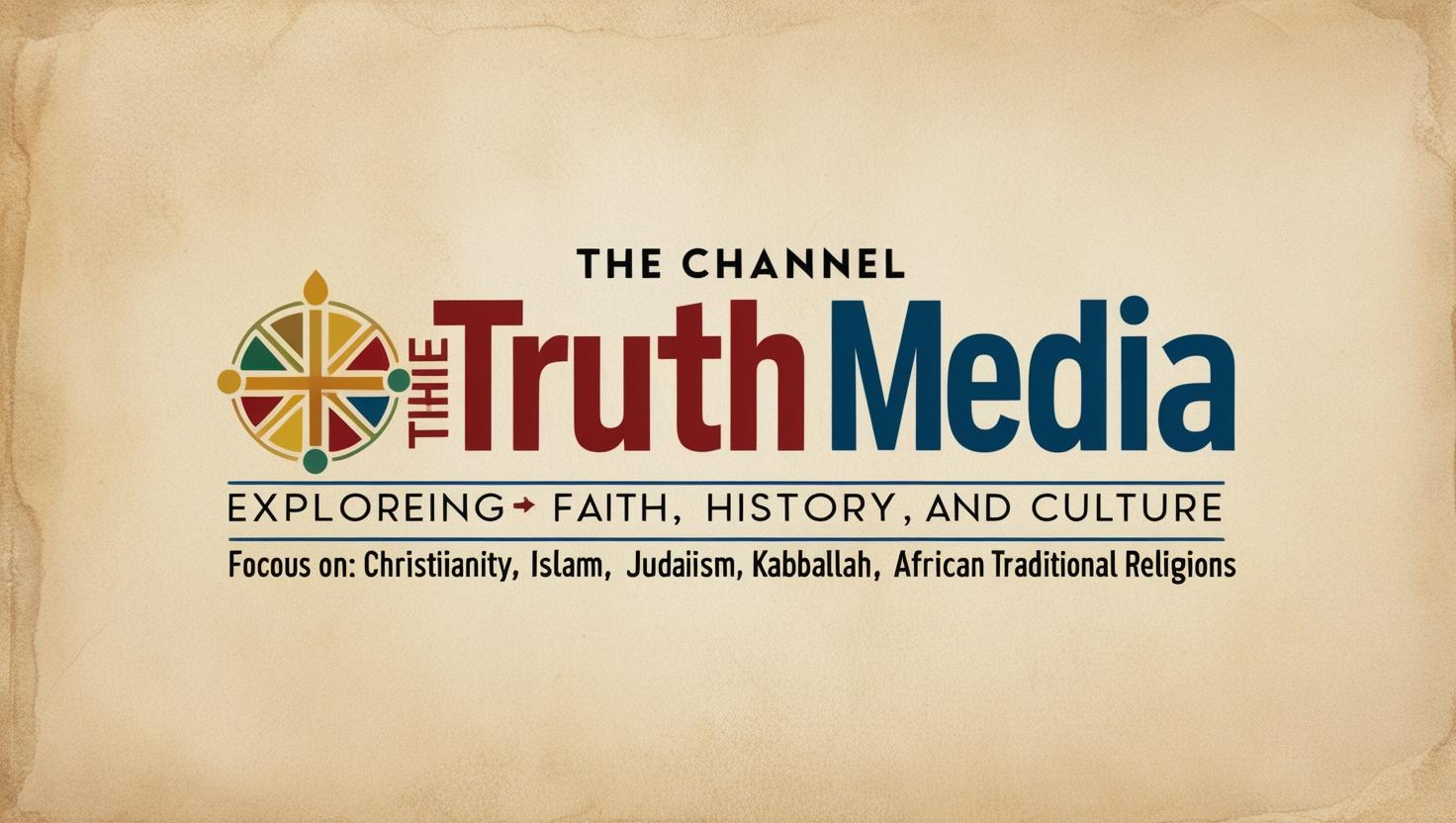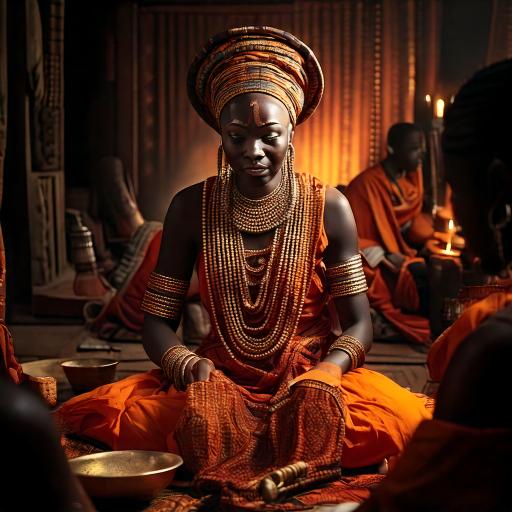African Traditional Religions (ATR) are deeply embedded in the daily lives of African communities. Central to these religions are rituals that serve as powerful tools for spiritual connection, community cohesion, and the manifestation of divine intervention. These rituals, which are performed for a wide range of purposes—from healing to invoking divine blessings—play a critical role in the lives of practitioners. Rituals are not just ceremonial acts but rather profound expressions of faith, belief, and the desire to engage with the spiritual world. This article explores the significance of rituals, sacred objects, initiation practices, and the healing power of rituals in African Traditional Religions, highlighting how they foster spiritual growth, personal identity, and well-being.
The Significance of Rituals: Connecting Humans with the Divine
Rituals in African Traditional Religion are vital in facilitating a connection between humans and the divine. These sacred acts are designed to transcend the material world and bring individuals into direct communion with spiritual forces, deities, and ancestors. The importance of rituals lies in their ability to bridge the gap between the physical and spiritual realms. Through ritual practices, individuals seek to establish and maintain harmony with the divine, ensuring spiritual balance and alignment with the forces that govern life.
In ATR, rituals are performed for various reasons: to seek divine protection, request blessings, express gratitude, or atone for sins. These rituals, which may include offerings, sacrifices, prayers, and chants, are seen as a means of invoking spiritual powers that influence every aspect of life. They enable individuals to establish relationships with spiritual beings who govern health, prosperity, fertility, and other critical aspects of existence. By performing these rituals, practitioners believe they can tap into the divine energy that sustains life and nature.
The rituals themselves often involve specific codes of conduct, which include prescribed gestures, words, and times for performing the sacred acts. The detailed and deliberate nature of these practices underscores their significance as a channel through which spiritual communication occurs. The connection to the divine is thus not passive; rather, it is an active and reciprocal process, where both humans and spirits engage in a continuous dialogue that shapes the spiritual landscape.
Moreover, the communal aspect of rituals is essential in African Traditional Religions. Many rituals are performed in groups, and their execution fosters a sense of collective responsibility. The community comes together to honor the divine, reinforcing social bonds and cultural values. This communal dimension reflects the African worldview that spiritual and social life are inextricably linked. Rituals thus act as both a spiritual and social practice, fostering unity and cohesion within the community.
Sacred Objects in ATR: Meaning and Uses of Altars, Idols, and Amulets
In African Traditional Religion, sacred objects hold immense spiritual significance and are central to many rituals. Altars, idols, and amulets are not merely physical items but symbols of divine presence and spiritual power. These objects serve as conduits through which humans can access and interact with the divine, ancestors, and spirits.
Altars are perhaps the most important sacred objects in ATR. They are carefully constructed spaces where offerings, prayers, and sacrifices are made to the deities and ancestors. Altars may be found in homes, temples, or designated sacred sites, and they serve as focal points for ritual activities. They are often adorned with various items such as candles, incense, food offerings, and ritual tools, all of which symbolize respect and reverence for the divine. The placement of the altar is significant, as it is often positioned in a manner that aligns with cosmic principles, such as the direction of the sun or the cardinal points. The act of maintaining and tending to an altar is seen as a way of nurturing the relationship between humans and the spiritual realm.
Idols or statues are representations of deities, spirits, or ancestors, and they serve as tangible manifestations of divine power. These idols are often crafted with great care and attention to detail, reflecting the attributes and qualities of the spiritual beings they represent. In ATR, idols are not worshipped in and of themselves but are viewed as vessels through which the divine presence is made accessible. They are used in rituals to invoke the spirits they represent, and offerings are made to them to seek divine favor. The physicality of the idols helps the practitioner focus their intentions and prayers, providing a concrete focal point for spiritual engagement.
Amulets are small objects that are believed to hold protective or healing powers. These items, which can be worn as jewelry or carried in pockets, are commonly used to ward off evil spirits, bring good luck, or protect the wearer from harm. Amulets may be inscribed with sacred symbols, texts, or images, and they are often consecrated through rituals to imbue them with spiritual power. In ATR, the belief in the power of amulets is rooted in the understanding that certain materials and symbols can channel spiritual forces to influence the physical world. Amulets are not seen as magical objects in a superstitious sense, but as spiritually charged items that have been empowered through ritual.
These sacred objects are essential tools in the practice of African Traditional Religion. They facilitate communication with the spiritual realm, and their use reinforces the belief that the divine is present and active in the world. They remind practitioners that the sacred and the material are intertwined, and that spiritual engagement requires both reverence and action.
Initiation Practices: Shaping Spiritual Identity in ATR Communities
Initiation is one of the most significant rituals in African Traditional Religions, marking the transition from one stage of life to another. It is a rite of passage that signifies the individual's entry into a new spiritual, social, or cultural phase. Initiation practices vary across African cultures but generally share common elements, including teachings, trials, and the impartation of spiritual knowledge. These rituals are designed to shape the spiritual identity of the individual and integrate them into the community.
Initiation into African Traditional Religion is often associated with youth, as many initiation rituals are performed to mark the transition from childhood to adulthood. However, initiation can also occur at other stages of life, such as when an individual is joining a religious or spiritual community, or when they are assuming a leadership role. The process of initiation is seen as essential for personal growth, spiritual development, and social integration.
The initiation process typically involves a series of stages, including preparatory teachings, symbolic acts, and tests of endurance or wisdom. During this time, the initiate learns the sacred knowledge and practices of their community, including the proper way to engage with the spiritual world, the role of ancestors, and the ethical principles that govern behavior. Initiates may also undergo physical rituals, such as circumcision, scarification, or fasting, which serve to purify the body and prepare the individual for their new role in the community.
Initiation is also a process of spiritual empowerment. Through rituals such as prayers, sacrifices, and blessings, the initiate receives divine protection and guidance. These rituals are designed to open the initiate to the spiritual forces of the universe, granting them access to ancestral wisdom and the power to engage with the divine. Initiates are often given spiritual names or titles that reflect their new status within the community and their spiritual responsibilities.
The significance of initiation extends beyond the individual. It serves to strengthen the community as a whole, as the newly initiated members take on roles that contribute to the spiritual and social well-being of the group. Initiation fosters a sense of belonging and identity, and it reinforces the community's values and traditions. Through this process, the individual becomes a fully integrated member of the spiritual and social fabric of their community, equipped with the knowledge and wisdom to contribute meaningfully to its well-being.
Healing through Rituals: Addressing Physical and Spiritual Ailments
Healing is a central component of African Traditional Religion, and rituals play a vital role in addressing both physical and spiritual ailments. In ATR, health is understood as a balance between the body, mind, and spirit. When this balance is disrupted, illness or misfortune can occur, and rituals are performed to restore harmony and facilitate healing.
Healing rituals in ATR often involve the use of sacred objects, prayers, incantations, and sacrifices. These rituals are typically led by spiritual healers, who are believed to possess the knowledge and ability to communicate with the spiritual realm. Healers, often known as herbalists or diviners, diagnose illnesses by consulting the spirits, using divination methods, and interpreting dreams. Once the cause of the illness is determined, a healing ritual is prescribed, which may include the use of herbs, cleansing ceremonies, or offerings to the gods or ancestors.
The role of herbal medicine in healing rituals cannot be overstated. Traditional healers often rely on plants and natural remedies to treat physical ailments. These herbs are believed to have inherent spiritual power, which can be activated through ritualistic practices. Herbal remedies are used not only to treat physical conditions but also to cleanse the spirit, remove negative energies, and restore balance to the individual.
Spiritual healing is also an essential part of ATR's approach to well-being. Many illnesses, particularly those that are chronic or unexplained, are believed to have spiritual causes. These may include ancestral displeasure, witchcraft, or curses. In such cases, healing rituals are performed to address the spiritual imbalance that is causing the physical illness. The rituals may involve prayers for protection, sacrifices to appease the spirits, or divination to identify the source of the affliction.
One of the key aspects of healing in ATR is the concept of restoration of balance. Illness is often viewed as a disruption in the natural order, and healing rituals aim to restore that balance. This holistic approach to health emphasizes the interconnectedness of the physical, emotional, and spiritual aspects of the individual, highlighting the need for a comprehensive approach to healing.
Through the practice of healing rituals, African Traditional Religion offers a profound understanding of health that transcends the physical body. It integrates spiritual, emotional, and communal aspects, offering a path to wholeness that nurtures the body, mind, and spirit.
Conclusion
Rituals are at the heart of African Traditional Religions, serving as powerful tools for connecting with the divine, fostering spiritual identity, and promoting healing. Whether through the sacred objects that serve as intermediaries between the physical and spiritual worlds, the initiation practices that mark key transitions in life, or the healing rituals that restore balance to the individual and community, rituals in ATR are essential to maintaining spiritual and social harmony. These practices offer profound insights into the ways in which spirituality shapes human experience, reinforcing the interconnectedness of life, community, and the divine. Through these rituals, African Traditional Religions continue to offer a rich and meaningful framework for understanding the complexities of the human condition.

